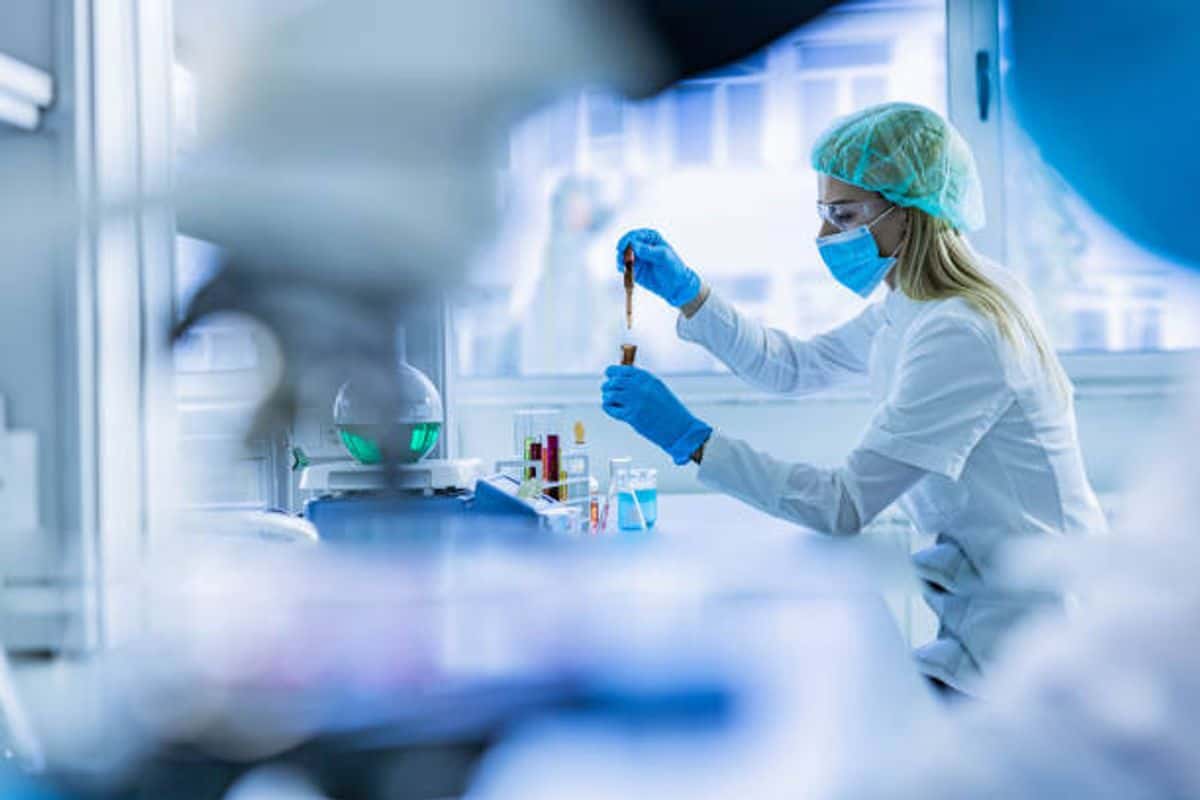The Highest Paying Biochemistry Jobs and their Salaries
This article provides a list of the highest paying biochemistry jobs. Also, it provides a description of each job and its salary.
Biochemical engineering is the development of products and processes using biological materials such as living organisms, cells, and specific molecules.
Advertisement
Industries depend on biochemical engineering to run biofuels, create safe and clean food, purify our waters and develop products that will benefit the environment.
Highest Paying Jobs in Biochemistry
There are hundreds of fields in the biochemistry field, so today we’ve compiled some of the highest paying jobs in the industry, so stay tuned.
- Clinical research associate
- Clinical scientist
- Pharmacologist
- Biochemical engineer
- Toxicologist
Clinical Research Associate (Avg Annual Salary, $125,103)
Clinical Research Associates (CRA) organizes and manages clinical trials of new or current medicines and assesses their benefits and risks. CRAs conduct clinical trials to test the efficacy of drugs and ensure they are safe to market.
They work on new and existing medicines and are usually employed by either a pharmaceutical company or a contract research organization (CRO) that works on behalf of a pharmaceutical company.
Advertisement
Also, check out The Highest Paying Engineering Jobs and their Salaries.
Furthermore, They are typically involved in all stages of a clinical trial, including clinical trial location, clinical trial setup, initiation, monitoring, and completion. They will typically need to;
- Identify and notify the appropriate investigator
- Establish and dissolve a clinical trial facility
- Design of experimental materials and supply of sufficient quantity of research center
- Provide clinicians with instructions on how to conduct the study
- Collect and authenticate data collection forms (commonly referred to as case report forms)
- Monitoring progress during the study period
- Write a report
- Development and creation of experimental protocols (outline objectives and methodologies)
- Submit the test protocol to the steering committee
- Designing a data acquisition form called the Case Report Form (CRF)
- Coordinate with an ethics committee that protects the rights, safety, and welfare of all subjects
Clinical Scientist (Avg Annual Salary, $124,347)
Clinical scientists are life science experts who study blood, tissues, cells, and other biological parts to advance medical research and biological knowledge. As biochemical clinical scientists, they analyze samples from a patient’s blood, urine, or other body fluids to help diagnose, treat, and treat the disease.
They often work in hospital laboratories to interpret and validate the results of these samples and advise clinicians and GPs on the correct use of tests and the necessary follow-up work.
Jobs can vary significantly, but most clinical scientists work with larger research teams to design and conduct experiments and publish results. Other responsibilities include;
- Plan and organize your work at the Clinical Biochemistry Institute. Many are automated and computerized.
- Perform analysis of fluid and tissue samples
- Check for unusual results, determine if further testing is needed, and perform clinical validation
- Test use and diagnostic performance review
- Identify and fix issues with poor analytical performance
- Development of new and existing tests. This can require significant manual expertise.
- Design and carry out basic or applied research
- Write reports and promotions
- Get in touch with clinical and medical staff and get in touch with patients
- Apply clinical biochemistry skills to prevent illness and maintain patient health.
Also, check out the Highest Paying Biology Jobs and their Salaries.
Pharmacologist (Avg Annual Salary, $121,391)
Pharmacologists are knowledgeable experts focused on the study and understanding of the chemical processes that occur between living organisms and various substances and compounds.
The main purpose of pharmacologists is to discover, develop and test new drugs. There are several disciplines and specialties in the field of pharmacology.
Pharmacologists try to understand how chemicals interact with the body.
Work as part of a research team responsible for compound screening, drug development, laboratory-controlled experiments, and clinical trials. Their goal is to better understand the diseases, develop new medicines to treat them, and promote the safe use of existing medicines.
Other substances, such as poisons and toxins, are also being studied by pharmacologists to understand how these substances can be harmful to the body. They also;
- Design, plan, and conduct controlled experiments and/or clinical trials to improve understanding of drug activity
- Data collection, analysis, and interpretation using computers, high-tech measurement systems, and other advanced devices
- Make recommendations based on research results
- Applying and further developing the research results, for example, B. New products, processes, technologies, and practices.
- Make suggestions for future development testing
- Organize and supervise new and new drug trials, ensure quality control and ensure approval for their use
- Work with regulatory agencies to ensure compliance with regional, national and international regulations
- Plans, coordinates, and supervises the work of other technical staff and trains or guides, junior pharmacologists.
Biochemical Engineer (Avg Annual Salary, $118,850)
Biochemical engineers use advanced technology and knowledge of engineering, biology, and chemistry to develop new products and manufacturing processes from biological materials.
They often work with scientists and other engineers in the lab to test interactions between materials and develop product ideas. Then use that insight to work with manufacturers and engineers to devise processes for designing and manufacturing products, often on a large commercial scale.
Biochemical engineers conduct research on cells, proteins, viruses, or other biological substances to determine optimal growth conditions or inhibitors that can be stopped or killed.
They develop and perform experiments to observe raw material interactions in a particular environment. Their responsibilities also include;
- Laboratory design and experiment supervision and supervision
- Investigate how to promote or prevent the growth of biological substances such as cells, proteins, and viruses
- Experiment with materials to see how they react to each other or in a particular environment
- Computer simulations and statistical models are used to predict potential outcomes from material interactions and attempt to reproduce those outcomes in the laboratory.
- Documentation of all surveys, tests, and results in a well-organized database
- Use CAD (Computer Aided Design) software to create diagrams and instructions for designing or improving equipment
- Development of processes for manufacturing products from these materials
- This is followed by safety and operating procedures for manufacturers producing these products on a large scale.
- Solve problems and support equipment maintenance during the manufacturing process
Also, check out the Highest Paying Medical Jobs.
Toxicologist (Avg Annual Salary, $86,480)
Toxicologists are scientists who examine body fluids and tissue samples during an autopsy to determine the presence of toxins and chemicals. They work in the laboratory and use different methods to find the toxic levels of drugs and other toxins in the body.
If it is determined that toxic substances are present, toxicologists measure the levels found and determine if they may have contributed to the death of the patient. In addition, many toxicologists work to resolve criminal cases and testify in court on behalf of their laboratory results.
As a toxicologist, you can assess the safety of your products at a pharmaceutical, water, or chemical company. You can also work for government regulatory agencies such as the Food and Drug Administration (FDA) and the Environmental Protection Agency (EPA). Typical responsibilities of a toxicologist include;
- Controlled experiment and test conception, planning, and implementation
- Create and test a hypothesis. Identify and quantify toxins using appropriate analytical techniques
- Data analysis and interpretation
- Testify in court
- Conducting a field survey
- Study-related literature
- Write reports, reviews, and essays
- Conducting a risk assessment to determine the potential for adverse effects
- Participation in the development of regulations to protect people, animals, and the environment
- Cooperation and exchange of expertise and research results with scientists and engineers
Final Notes on the Highest Paying Biochemistry Jobs
These are the jobs available in the Biochemistry space. What do you think? Which job do you want to pursue? Let us know.
Before you go, apply for Available Jobs.







One Comment
Comments are closed.